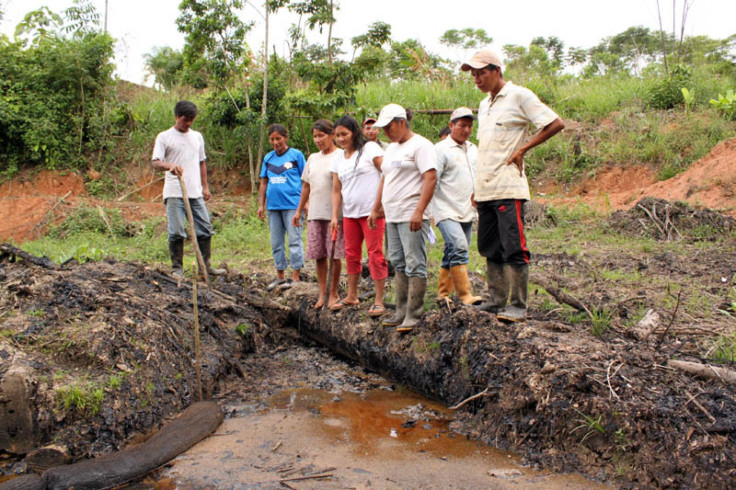Chevron Asks Judge To Block Jury Decision On Pollution Case With Ecuador, Promises To Drop $60B Compensation Claims

In a surprising turn of events, oil giant Chevron (NYSE:CVX) has announced its intention to drop a $60 billion damages claim against Ecuador over a world-famous pollution case that has dragged on for decades – if a U.S. judge accepts its request to block a jury from deciding its fraud claims against the Ecuadorian plaintiffs and their American lawyer.
Chevron, who has been enmeshed in legal proceedings with Ecuador for almost two decades over allegations of polluting the Amazon jungle during oil explorations, also asked federal judge Lewis A. Kaplan to bar from the case all evidence of the company’s record of environmental damages. Another of the oil company’s demands was for the judge to conduct secret hearings for certain witnesses, without the defendants (the Amazon Defense Front, as the group opposing Chevron is known) present.
For the Ecuadorians' legal team, the move shows that Chevron does not believe its own claim of having been damaged by the Ecuador lawsuit. “Chevron has shown over and over that its only legal strategy is to outspend everyone and continue to run from the law for another twenty years,” Washington, D.C.-based attorney Chris Gowen, who is advising the Ecuadorians and their U.S. lawyer, told CSRWire. “When a litigant tries to avoid a jury, you can be certain that litigant knows it has no case.”
“This suggest a collapse of confidence in the Chevron camp,” added Gowen.
The legal saga began in 1993, when New York attorney Steven Donziger filed a lawsuit on behalf of Ecuador against U.S. oil company Texaco, which later merged with Chevron in 2001. The suit was asking for $19 billion in compensation from the oil company, for allegedly polluting Lago Agrio, in the Ecuadorian Amazon, harming thousands of indigenous villagers and making their surroundings unlivable.
The plaintiffs brought the case to courts in Ecuador and the United States, arguing that Texaco's practices violated laws in both countries. Both times, the courts sided with the Ecuadorians. Chevron then filed a RICO (Racketeer Influenced and Corrupt Organizations Act) in 2011 against the Amazon Defense Front, fighting back hard by invoking the law that the U.S. government frequently uses in Mafia prosecutions. Chevron argued that the plaintiffs had won the $19 billion judgment fraudulently, through extortion, mail fraud, wire fraud, and witness tampering. The company was asking for $60 billion in compensation.
Judge Kaplan had sided with Chevron all along, consistently making disparaging remarks about Ecuador’s judicial system. Donziger, the Amazon Defense Front's lawyer, filed counterclaims pointing the finger at Chevron, saying that the company was using the RICO lawsuit as a distraction from its environmental crimes.
“For three years, Chevron has used its RICO suit largely for public relations purposes to falsely taint the Ecuador case and my personal reputation,” said the lawyer. “When it comes time to put their allegations to the test, Chevron chickens out and runs into the arms of its favorite judge for protection.
Kaplan is currently the subject of a petition by the Ecuadorians for recusal and will appear in late September before a three-judge appellate panel in Manhattan, which might affect the scheduled trial date for Chevron on October 15.
© Copyright IBTimes 2024. All rights reserved.





















